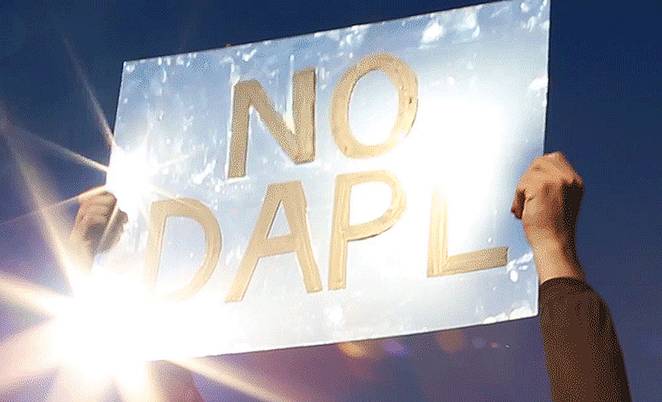Column: Dakota Access Pipeline protestors may be missing the point
December 9, 2016
Contrary to popular belief the issue is not and should not be about historical and cultural protection of the land, rather the environmental consequences it could possibly bring.
There is no part of the Dakota Access Pipeline, who’s construction was recently halted after demonstrations turned violent, that touches Standing Rock Sioux’s reservation. However, the Sioux tribe argues that the path of the pipe would cause the destruction ancient sacred burial through the 100 foot deep implantation of the pipes. This sight had already undertaken destruction for the pipeline’s construction before the pipeline’s progress was halted.
The fact is that the land which construction would take place is now privately owned and 100% of those owners gave permission to Dakota Access to construct. The land on which the pipeline construction would take place was actually granted to the Sioux tribe through a treaty with the US government that was later revoked and ignored, continuing the historical cycle of unkept deals made with Native Americans. There is always the valid and sentimental argument that the land was stolen from the Native American’s way back when, but what land in America wasn’t?
Although the Missouri river already has 8 other pipelines running under it. Unfortunately, Sunoco Logistics, who will own and operate the pipeline has more pipeline leaks than any other US pipeline company with more than 200 spills since 2010. Considering the Missouri River flows through at least 6 states before it flows into the Mississippi, this high rate of leakage is a major environmental concern to everyone living below North Dakota, not just the protesting Sioux tribe.
This crude oil that the pipeline would carry is already being produced and being transported by railroad and tanker trucks. Those arguing for the pipeline say it will have less of a green house gas effect if it is transported through the pipeline. Whether that is true considering the possibility of the pipe leaking so far underground, close enough to seep into ground aquifers, does not matter. It is not the pipeline, but the fact that crude oil and other limited, global warming affecting resources are still being used that should arouse protest.
Oil, gas, and coal continuous over-usage is a main contributor to the addition of green house gasses surrounding the earth, which in turn causes climate change. So no, the pipeline should not be built, simply because the world is in a dire situation and should be treated with precautions.




